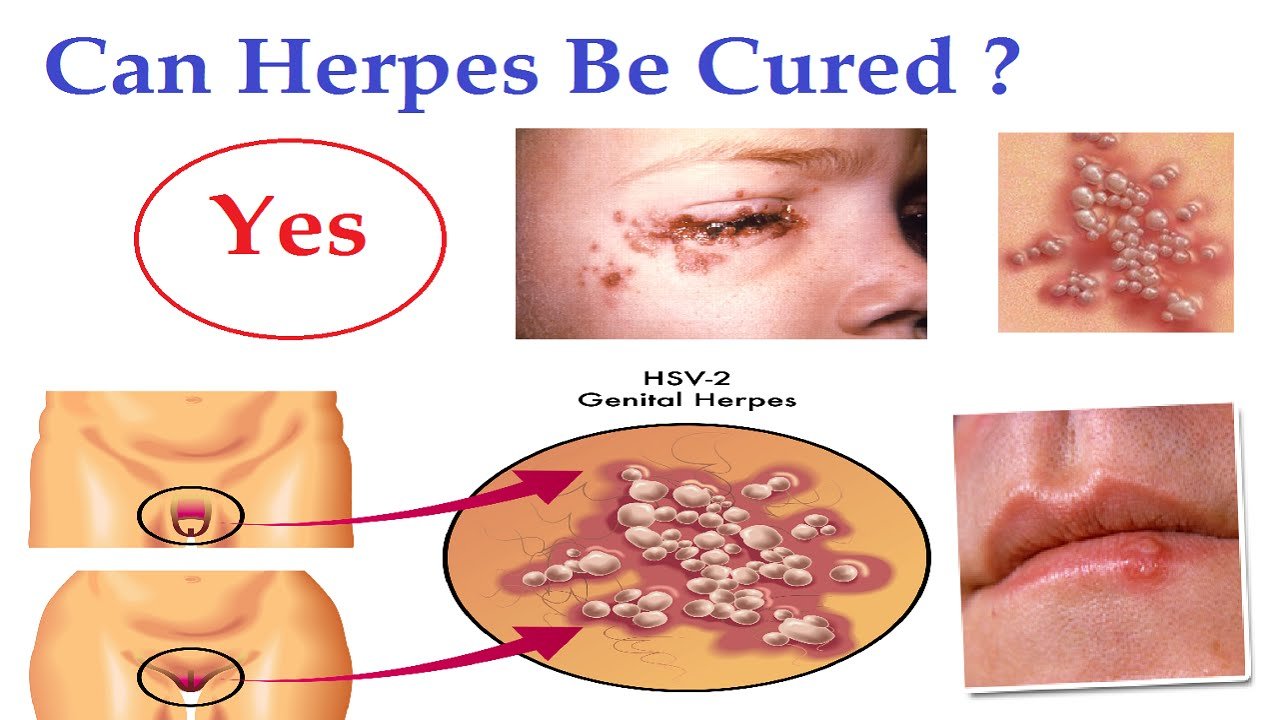How to Cure Herpes - Herpes Cure or Treatment
 Herpes is a chronic disease caused by Herpes Simples Virus (HSV). Herpes often transmitted sexually or by having direct contact with an infected person. According to WHO, significant symptoms of herpes include sores, itching, pain when urinating, vaginal discharge, fever, and enlarged lymph nodes. While some people may not show herpes symptoms, they can still pass on the virus when they become in contact with uninfected persons.
Herpes is a chronic disease caused by Herpes Simples Virus (HSV). Herpes often transmitted sexually or by having direct contact with an infected person. According to WHO, significant symptoms of herpes include sores, itching, pain when urinating, vaginal discharge, fever, and enlarged lymph nodes. While some people may not show herpes symptoms, they can still pass on the virus when they become in contact with uninfected persons.
The most common types of herpes include the HSV-1 and HSV-2. The HSV-1 is sometimes known as oral herpes and majorly forms around the mouth. The other HSV-2, also known as genital herpes, usually form around the genital area. Unfortunately, there is no cure for either type of herpes. Nonetheless, doctors can prescribe you with antiviral drugs to help control the multiplication of the virus. These drugs, therefore, help to control the symptoms as well as reduce the outbreak of the disease.
Initial Herpes Cure And Treatment
Knowing whether or not you have herpes can sometimes be difficult especially when you are undergoing some experience linked to herpes. However, to be certain enough, you need to visit your doctor for tests. In most cases, doctors often carry out diagnosis using three laboratory tests. Some of the tests carried out include viral culture, polymerase reaction (PCR) tests, and blood.
Once diagnosed with the disease, it is always essential for you and your partner to undergo some counseling. This step is very critical in the management and treatment of herpes. Clinical counseling helps you to cope up with the infection and prevent further transmission. Also, it makes you accept your situation and prepares you for treatment.
Initial treatment should always be administered within 72 hours after the onset of the first symptom. Majorly, the treatment involves antiviral therapy. The therapy often helps to relieve the sores and other symptoms from getting worse. Treatment of initial infection may include acyclovir at a dose of 400mg three times a day. The therapy is usually a brief course and takes up to 10 days. In some situations, it may last longer if the sores don't heal within that time. Also, to ensure speedy healing, you need to keep the infected area clean and dry.
Intermittent Herpes Treatment
Intermittent treatment helps to prevent a sudden recurrence of herpes symptoms. Therefore, your doctor will always prevent the flare-up of this illness by prescribing some of the antiviral drugs. These drugs will also help in improving your immunity against any abrupt recurrence. The physician may prescribe acyclovir at a dose of 800mg twice a day to cure herpes. You need to take the prescriptions with strict observance. For instance, you can take the pills for about three to five days as soon as you notice the sores or you feel an outbreak coming. The antiviral drugs are very much effective when it comes to healing the sores. It makes them disappear on their own much faster.
Suppressive Herpes Cure And Treatment
There are some cases where intermittent treatment may not be much effective. For instance, if you frequently experience outbreaks. If you are that type of patient that experiences more than six outbreaks each year, suppressive treatment can be the best option for you. However, most doctors are always reluctant, putting their patients into suppressive treatments. This is because too much frequency can negatively affect the patient's quality of life. Therefore, the treatment can only be suggested to patients who are psychologically distressed about their diseases.
In suppressive treatment, you will be expected to take antiviral drugs on a daily basis. The commonly used medicines include famciclovir and acyclovir. Suppressive treatment does reduce the number of outbreaks by almost 80 percent. According to statistics by CDC, the majority of people who take suppressive treatments as expected do not experience outbreaks at all.
What's more, suppressive herpes treatment is usually used to reduce the risk of transmission to uninfected partners. Also, it can be used to prevent mother to child transmission during pregnancy. In such cases, your doctor may prescribe either acyclovir or valacyclovir, depending on the patient's condition. Acyclovir is also recommended to treat women in all stages of pregnancy or breastfeeding since it poses little health risks. For patients experiencing severe pains during outbreaks, 1g of valacyclovir may be recommended daily.
Must Read: 5 important reasons why positive people perfer to use herpes dating sites
